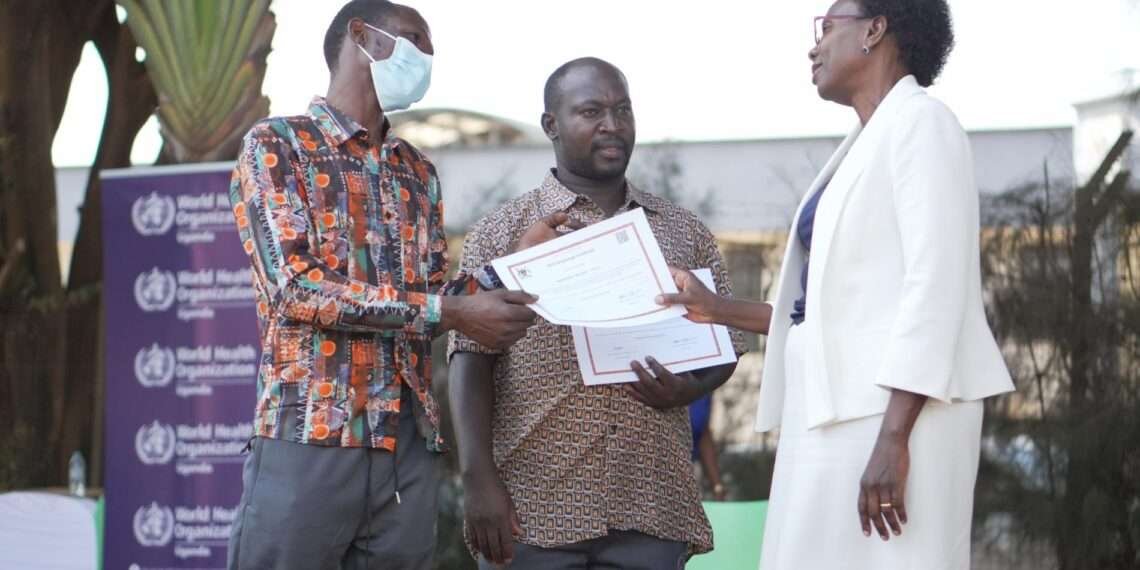Uganda has discharged eight patients who had been receiving treatment for Sudan virus disease, a deadly illness belonging to the same family as Ebola virus disease.
The patients were released after undergoing two consecutive negative tests 72 hours apart, signaling a significant step in the country’s fight against the outbreak.
The recovered individuals had been receiving care at treatment centers in the capital, Kampala, as well as in Mbale, a town in eastern Uganda. Meanwhile, health authorities continue to monitor 216 contacts who are in quarantine across various facilities nationwide.
Since officially declaring the Sudan virus outbreak on January 30, 2025, Uganda’s health ministry — working closely with the World Health Organization (WHO) and partner organizations — has implemented a comprehensive response strategy. This includes strengthening early detection measures, enhancing clinical care, enforcing infection prevention and control protocols, and fostering community engagement to curb the virus’s spread.
Dr. Jane Ruth Aceng Ocero, Uganda’s Minister of Health, emphasized that those discharged pose no health risk. “I urge their families and communities to receive and interact with them normally.”
In response to the outbreak, WHO has deployed 47 health emergency experts, provided seven tonnes of emergency medical supplies, and assisted in mobilizing national Emergency Medical Teams. These teams have played a critical role in setting up specialized treatment facilities, including an 84-bed isolation unit at Mulago National Hospital in Kampala.
WHO’s experts have also been instrumental in providing technical expertise in disease surveillance, contact tracing, testing, and diagnostics. Additionally, the organization supported Uganda’s Ministry of Health in launching a groundbreaking vaccination trial soon after the outbreak was declared, as well as advancing research into potential therapeutics for Sudan virus disease.
Dr. Kasonde Mwinga, WHO Representative in Uganda, acknowledged the milestone but cautioned that the battle against the virus is far from over.
“The discharging of the patients today not only marks an important milestone in our collective efforts to control the outbreak, but it also brings huge relief to their families and communities,
“While we welcome this positive step, we remain steadfastly on course, working with our partners to support the government in halting this virus and ending the outbreak.”
Dr. Kasonde Mwinga

Community Engagement and Public Awareness
Alongside medical interventions, Uganda’s health authorities, with support from WHO and other organizations, have intensified efforts to raise public awareness. Countering misinformation and promoting early care-seeking behaviors have been at the forefront of these initiatives. Local leaders and health workers are actively educating the public about the virus, dispelling myths, and ensuring that communities understand how to protect themselves.
The discharged patients will continue receiving support during their reintegration process. Psychosocial teams from WHO, the Ministry of Health, and partner organizations are working closely with survivors, their families, and communities to ensure a smooth transition. Additionally, survivors will undergo regular medical checkups at specialized clinics.
Sudan virus disease is a severe and often fatal illness that affects both humans and primates. It is caused by Orthoebolavirus sudanense (Sudan virus), a member of the same viral genus responsible for Ebola virus disease. Case fatality rates for Sudan virus disease have varied between 41% and 100% in previous outbreaks. Currently, there are no approved treatments or vaccines for the virus, though early supportive care has been shown to significantly improve survival rates.
Most of the Ebola patients received treatment at Uganda’s main referral facility in Kampala. The outbreak’s only fatality so far was a male nurse who passed away on January 30, the day before the official outbreak declaration. His relatives were among those later hospitalized with the virus, highlighting the highly contagious nature of the disease.
Ugandan health authorities continue to work alongside international partners to contain the outbreak, prevent further infections, and explore long-term strategies for managing viral hemorrhagic fevers in the region.
READ ALSO: MfC Commends President Mahama – Proposes Economic Reforms


















